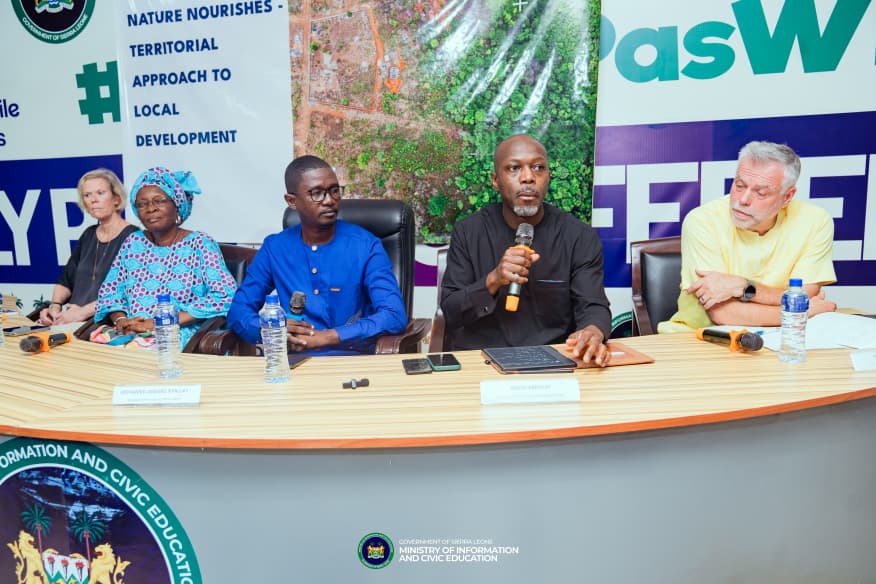FREETOWN, Sierra Leone – The United Nations World Food Programme (WFP) has welcomed a EUR 9 million contribution from the European Union (EU) to launch the Nature Nourishes Territorial Approach for Local Development (NN-TALD) project—an ambitious three-year initiative aimed at reducing biodiversity loss while improving the sustainable quality of life for communities living around key forest landscapes in Sierra Leone.
This multi-sectoral action combines policy-level support with grassroots engagement to promote environmentally friendly practices, expand livelihood opportunities, and strengthen inclusive public service delivery. The project targets smallholder farmers, women, youth, and marginalized groups living near critical ecosystems, with an estimated 75,000 beneficiaries.
The overall objective is to curb environmental degradation while empowering communities to thrive sustainably. Specifically, the action will:
-
Strengthen land-use governance and natural resource management in conservation areas.
-
Enhance access to green economy and climate-resilient livelihoods for all community members.
-
Improve infrastructure, service delivery, and social protection in targeted communities.
“This contribution marks a significant investment in the future of Sierra Leone,” said Yvonne Forsen, WFP Representative and Country Director. “It will empower communities through sustainable agriculture, promote inclusive governance, and strengthen resilience in the face of climate shocks.”
A core feature of the project is the NN-Facility, a €5.5 million fund that local stakeholders can directly apply for to implement their own Chiefdom Development and Land Use Plans. These funds will support projects that strengthen environmental governance, promote alternative livelihoods, and develop green infrastructure.
The NN-TALD initiative directly supports Sierra Leone’s national development plan and key sectoral strategies, including the Protect Salone Strategy launched by the Ministry of Environment and Climate Change (MECC) last March. The programme is also fully aligned with the EU’and the Team Europe Initiative Green Pact with Sierra Leone. It reflects Europe’s broader commitment to fostering a greener, more equitable future for all Sierra Leoneans.
A central component of NN-TALD is a data-led approach to conservation. The MECC and the EU are partnering with WFP’s Asset Impact Monitoring from Space (AIMS) team to conduct regular forest cover monitoring using remote sensing technology. This data is crucial for guiding conservation efforts. The project will also build on successful community-led conservation models.
“In well-managed areas, such as the Gola Rainforest and Tiwai Island, deforestation rates have been reduced to almost zero- said Holger Rommen, representative of the EU- This is not a coincidence; it is a direct result of strong management, effective partnerships, and dedicated community engagement”.
WFP and the EU will work closely with the Government of Sierra Leone and local partners to ensure effective implementation and long-term impact of the project across all targeted conservation areas.
